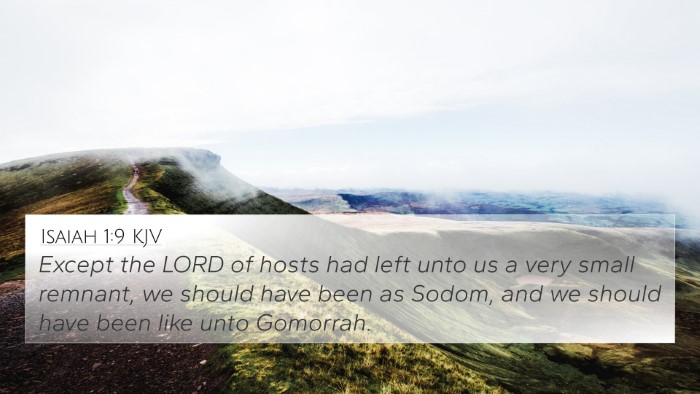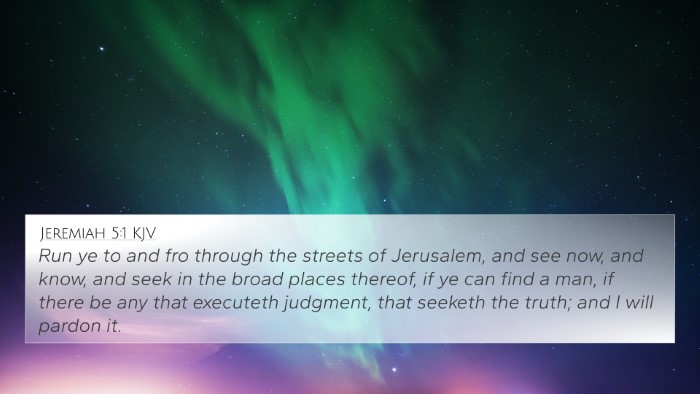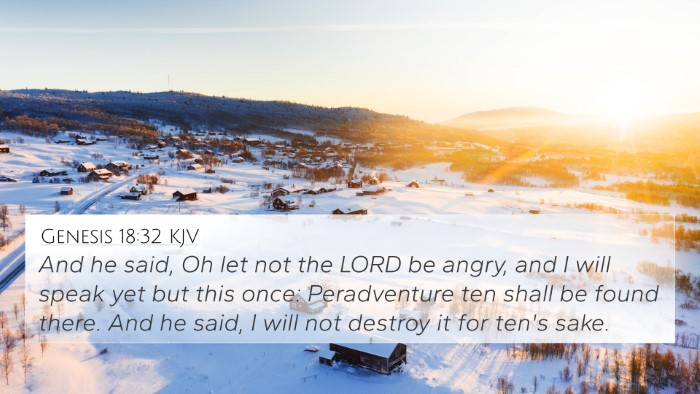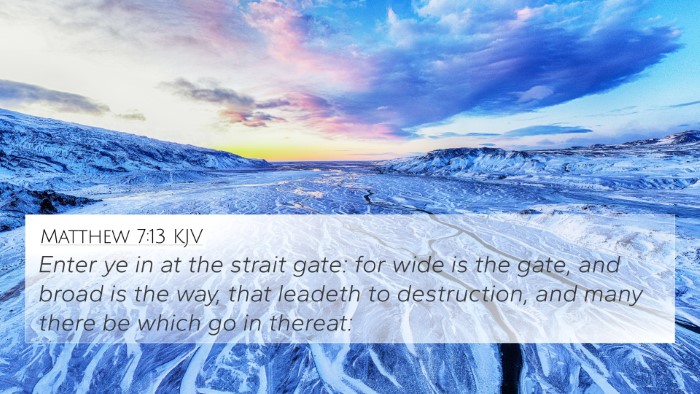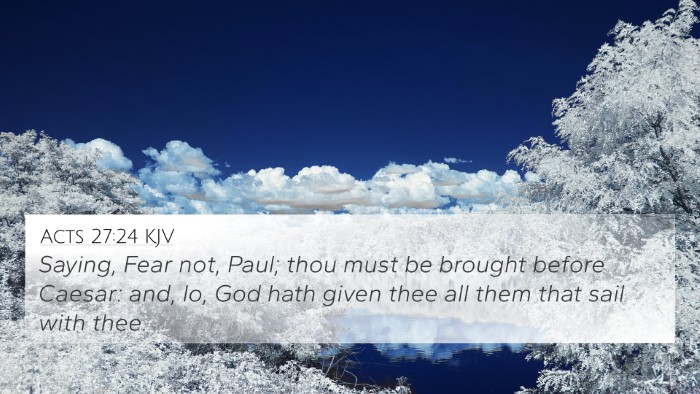Understanding Genesis 18:24
Genesis 18:24 presents a profound dialogue between Abraham and God concerning the fate of Sodom and Gomorrah. This verse encapsulates themes of justice, intercession, and the nature of divine mercy.
Verse Breakdown
Genesis 18:24: "Peradventure there be fifty righteous within the city: wilt thou also destroy and not spare the place for the fifty righteous that are therein?"
Interpretation and Insights
This moment highlights Abraham's concern for the righteous inhabitants of Sodom and reflects his understanding of God's character. Abraham engages in intercessory prayer, showcasing a believer’s responsibility towards others. As we delve deeper, we can extract several key insights:
- God's Justice: Abraham questions God’s justice by asking if He would destroy the entire city if fifty righteous people were found there. This implies that the righteousness of a few can have a significant impact on the fate of many.
- Divine Mercy: Abraham's plea illustrates God’s willingness to show mercy. The discussion suggests that God's judgment is balanced with compassion, inviting a deeper understanding of His nature.
- Intercession: This passage serves as a model for prayer where one seeks to intervene for others’ welfare. As Matthew Henry notes, Abraham's approach is one of respectful boldness; he petitions God without presumption.
- Relationship with God: The dialogue between Abraham and God highlights the personal relationship believers can have with Him, a relationship characterized by trust and open communication.
Comparative Bible Verse Analysis
In exploring the connections between Bible verses, we can identify parallels and themes that enhance our understanding of Genesis 18:24:
- Genesis 18:23: Abraham’s initial question establishes a foundation for his intercession, underscoring the importance of advocacy.
- Ezekiel 18:32: God expresses His desire that no one perish, reinforcing the theme of divine mercy found in Abraham's plea.
- James 5:16: This verse highlights the power of a righteous person's prayer, echoing Abraham’s example of intercessory prayer.
- Luke 11:9-10: Jesus teaches on asking, seeking, and knocking—principles of prayer that align with Abraham’s earnest request.
- Romans 3:10: Indicates that no one is righteous, enhancing the weight of Abraham's concern for the righteous in Sodom.
- Matthew 5:13-14: Believers as salt and light navigate themes of moral responsibility and influence in society similar to Abraham’s call for the righteous.
- 2 Peter 2:7-8: References Lot as a righteous man in the same city, connecting the narrative further and illustrating God’s mercy in judgment.
- Hebrews 11:17-19: This passage reflects on Abraham’s faith, resonating with his conversation with God regarding judgement and mercy.
- Proverbs 15:29: The Lord is far from the wicked but hears the prayers of the righteous, connecting the importance of righteousness with divine communication.
- Romans 8:26-27: The Spirit helps in our weakness, akin to Abraham’s role in intercession, emphasizing vulnerability and reliance on divine aid.
Tools for Bible Cross-Referencing
For further deepening your study, consider utilizing various tools for Bible cross-referencing:
- Bible Concordance: A resource for finding words and related verses systematically.
- Bible Cross-Reference Guide: Manuals that detail interconnections between verses for thematic studies.
- Cross-Reference Bible Study Methods: Techniques that encourage examining relationships between various parts of scripture.
- Bible Chain References: A technique linking verses thematically for comprehensive studies on specific subjects.
Long-Tail Keywords and Related Searches
Many individuals seek to deepen their scriptural understanding through various long-tail keyword queries:
- How to identify connections between Old and New Testament.
- Cross-referenced themes in the Bible.
- Detailed cross-reference between Gospels.
- Bible verses related to divine justice and mercy.
User Intent and Related Queries
A growing number of readers are exploring these themes through specific queries, enhancing their understanding:
- What verses are related to the concept of divine justice?
- Find cross-references for God's mercy in action.
- Similarities between Abraham’s intercession and other biblical figures.
- Bible verses that support the idea of collective responsibility in sin and righteousness.
Conclusion
Genesis 18:24 serves as a rich tapestry of faith, justice, and intercession. By examining this verse and its connections through various cross-references, one gains a deeper appreciation of God's character and the biblical call to pray for others. Believers are encouraged to reflect on their role as intercessors while understanding the deep mercy and justice of God in His dealings with humanity.



